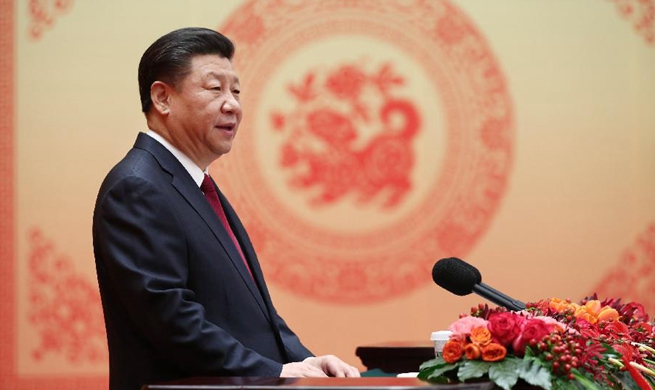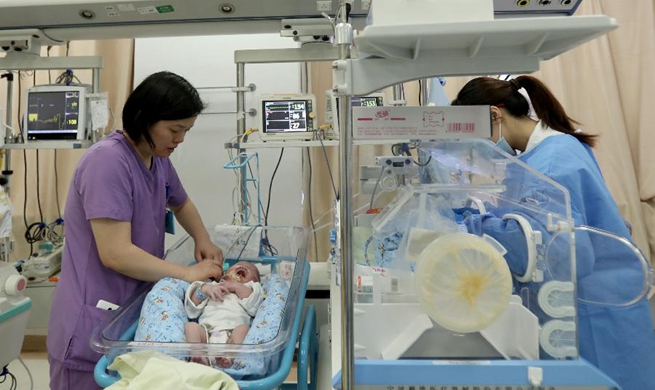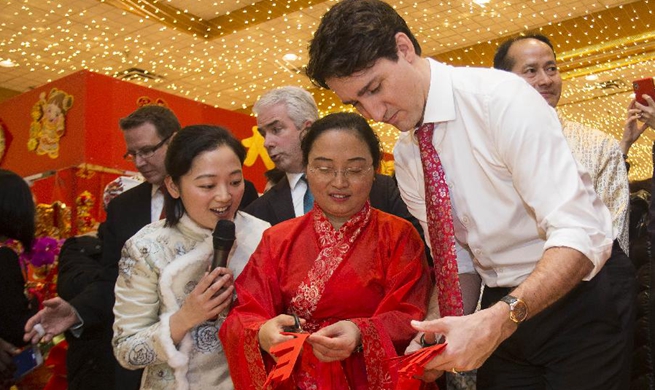BERLIN, Feb. 16 (Xinhua) -- Wolfgang Ischinger, chairman of the annual Munich Security Conference (MSC), has warned against the risk of a military confrontation between the U.S. and Russia on Friday.
Speaking on the opening day of this year's conference, Ischinger told the radio station "Deutschlandfunk" that there was "deep distrust" between military leaders in Washington and Moscow, making an outbreak of war more likely than at any time since the collapse of the former Soviet Union.
Ischinger blamed the deterioration of relations on the changing global role of the U.S. under President Donald Trump.
"I have the impression that, rather than just threatening the use of force, weapons are increasingly employed to secure narrow interests", the MSC chairman said. Ischinger argued that Washington had "visibly retreated" from its older role as "global policeman", especially in the Near- and Middle East.
Following an opening speech by German Defense Minister Ursula von der Leyen (CDU) on Friday, more than 500 politicians and experts from across the world will meet for three days at the luxury hotel "Bayrischer Hof", the MSC's traditional venue, to hold consultations over security issues. Attendees this year will include Russian Foreign Minister Sergej Lawrow, Trump's national security advisor Herbert Raymond McMaster, and Israeli Prime Minister Binyamin Netanyahu.
For the first time in a year, the foreign ministers of Germany, France, Russia and Ukraine, are also scheduled to discuss ongoing fights between pro-Russian Separatists and Ukrainian government forces on the sidelines of the conference. A likely focal point of talks will be the potential deployment of a United Nations (UN) peacekeeping mission to areas of conflict.
The Organization for Security and Cooperation in Europe (OSCE), currently tasked with surveilling the observation of a ceasefire agreement in Eastern Ukraine, lamented a recent escalation of violence in the region on Friday.
"We are in an upward spiral of violence again", Alexander Hug, principal deputy chief of the OSCE monitoring mission, told press. Last week alone, infringements of the ceasefire had increased by 30 percent.
Depending on whether or not his term in office extended after a bitter personnel dispute among the German Social Democrats (SPD), the 2018 MSC could mark the last such event for German Foreign Minister Sigmar Gabriel.
Commenting on the opening of the conference in the newspaper "Frankfurter Allgemeine Zeitung" (FAZ) on Friday, Gabriel urged Europe to become more self-confident with regards to its military power.
"Vegetarians face difficulties in a world of carnivores", Gabriel wrote. He consequently advocated for Europe not to "shy away from the occasional use of force" whilst still "prioritizing civilian measures".
Similarly, Hans-Peter Bartels (SPD), the defense commissioner for the German federal parliament (Bundestag), took the beginning of the 2018 MSC as an opportunity to demand better funding for his country's armed forces.
"The gaps should be filled by 2030", Bartels told the newspaper "Passauer Neue Presse" with reference to a promise of 130 billion euros in additional funds promised by the German ministry of defense back in 2016. (1 euro = 1.25 U.S. dollars)

















